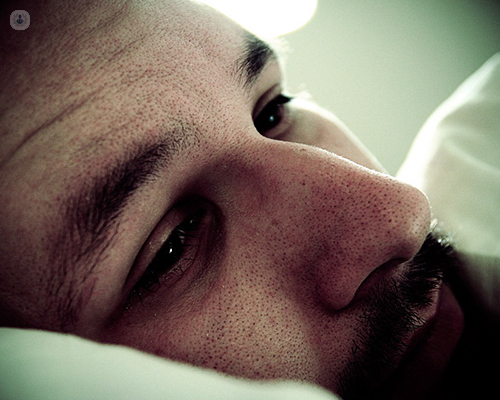Cómo diferenciar una mala racha de la depresión
Written by:One of the words I hear most in consultation is depression , and that worries me. The patient comes on numerous occasions with a misconception of what is said concept and uses it frequently when a bad streak or is sad for a few days. It is important to know this concept better to use it properly, in this way we can give it the relevance it has and intervene in cases that is necessary so that it does not become a bigger problem.
Symptoms of depression
Depression is a set of symptoms of affective predominance (pathological sadness, apathy, anhedonia, hopelessness, decay, irritability, subjective feeling of discomfort and impotence in the face of the demands of life) although, to a greater or lesser extent, symptoms of a cognitive, volitional and somatic type, so that one could speak of a global psychic and physical affectation, with special emphasis in the affective sphere.
The diagnostic capacity of a depressive disorder usually comes from less specific observations, such as deterioration in appearance and personal appearance, psychomotor slowing, low voice tone, sad facial expression, easy or spontaneous crying, decreased attention, verbalization of pessimistic ideas (guilt, hypochondria, hopelessness, ruin ...) sleep disturbances and nonspecific physical complaints. In order to distinguish these pathological changes from normal ones, we can focus on the persistence in time, its severity, and the degree of functional and social deterioration.

Not all people with these symptoms have depression. Many times it is confused with other types of pictures such as anxiety or different physical combinations in its definition but with similar or coincident symptoms. Behaviors that originate in the problem and that correlate or cause the development of other disorders, such as the consumption of substances or behaviors harmful to the person, may also develop.
Many scientific evidence has found a correlation between depression and physical pathologies, such as cardiovascular diseases. This further emphasizes the importance of intervention and its prevention.
Depression can be started at any age, although its highest prevalence occurs between 15 and 45 years. It can also occur at more advanced ages and go unnoticed by other cognitive disorders, such as age-related cognitive decline.
The greatest risk of this situation is the possibility that it ends in a suicide, the first cause of unnatural death in Spain, well ahead of traffic accidents. It is, therefore, a worrying situation that requires professional help. In many cases, in addition, the environment does not see or do not know how to help. Hence the importance of going to a psychologist .
Risk Factors for Depression
The variables that increase the risk of depression are personal, social, cognitive, familial and genetic. The intervention is aimed at modifying these variables according to the patient's resources, and in some cases to use pharmacological treatments that help in this process.
It is a disorder heavily influenced by education, the person's abilities, their behavioral habits, their routines and personal relationships. The psychological evaluation shows the different elements that have facilitated or detonated this reaction of the person, and is provided psychoeducation so that it knows this type of alteration and the functioning of itself. This allows you to put in place the resources and actions that improve the development of this disorder and prevent future occurrence or increase in severity.


